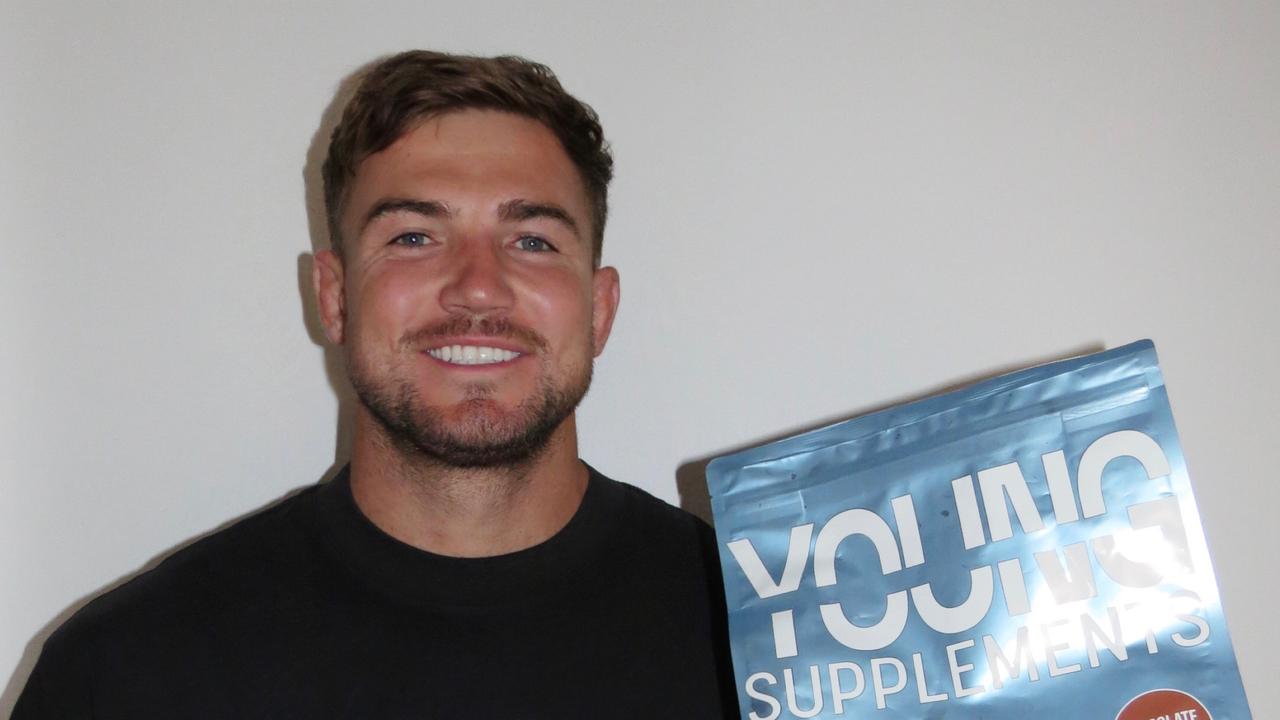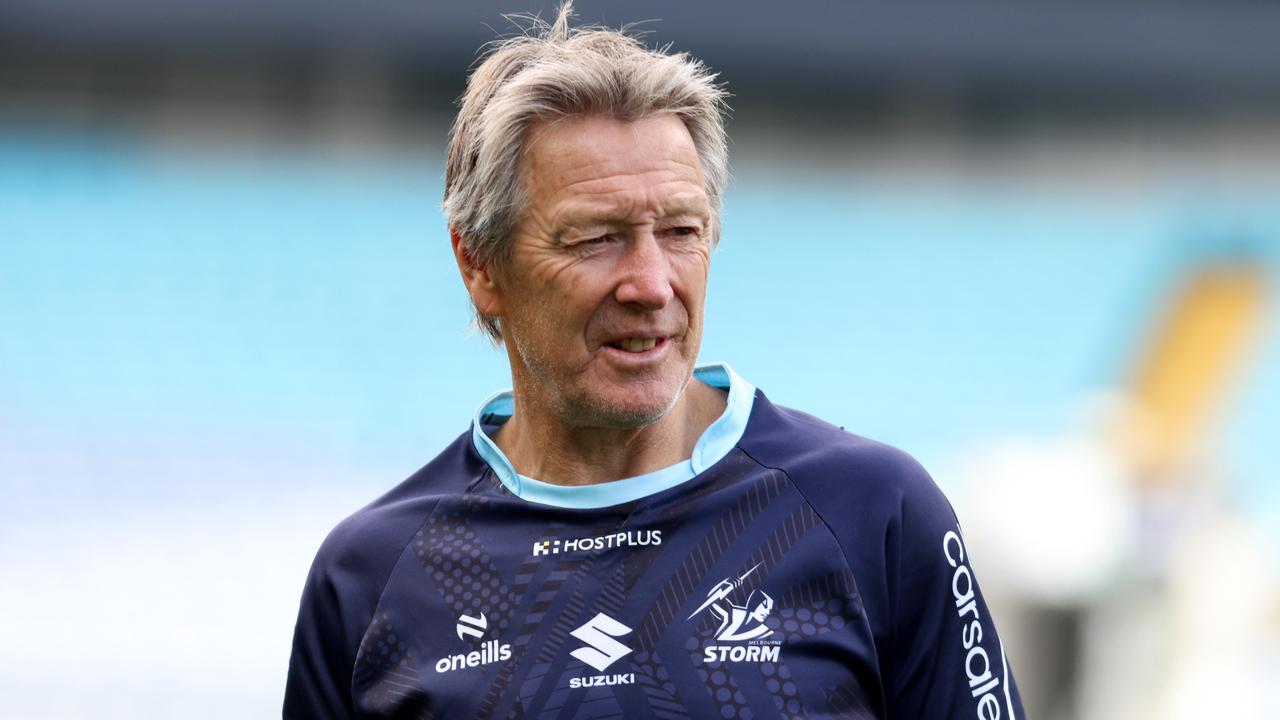‘I never really knew what the big fuss was about … until I felt the symptoms’
Roosters Body Cordner opens up to Head Noise host James Graham in his most revealing interview yet.

Former Roosters captain Boyd Cordner, who retired at age 29 because of concussion, has opened up on his toughest moments in his final seasons in his most revealing interview on the issue yet.
Cordner explains to fellow former NRL star James Graham that the paralysing headaches caused by concussions affected his day-to-day life.
Cordner, who made 181 appearances for the Roosters, played 20 Tests for Australia and was named Kangaroos captain in 2018, tells of the difficulty of receiving scans which showed his brain was “perfect” but still dealing with debilitating symptoms.
“What I quickly learned with head knocks and concussion is that there’s no sort of end game. Everyone’s different, there’s not much information around it or well, there is but there isn’t a set time period for anything,” Cordner tells Graham in episode three of The Australian’s podcast investigation Head Noise out on Monday.
“The Roosters obviously sent me for a scan straight away (after a concussion) and it ruled out anything serious.
“What was interesting to find out is that all the reports come back clear – ‘mate your brains perfect. Everything’s sweet’.
“(I thought) ‘oh, this is strange and I don’t feel that anything is sweet’ … and it’s basically they’re trying to tell you that you’re a liar or something – that’s how it can feel.”
Cordner told how for most of his career he felt like he recovered from concussions “easily”, that he didn’t know what the “big fuss” was until a head knock in the Roosters’ loss to Melbourne Storm in round 8 of the 2020 season at Suncorp Stadium.
“The one (concussion) in the Melbourne game was OK, like all my other head knocks,” Cordner tells Graham. “I actually pulled up OK, from concussions and I never really knew what the big fuss was about … I was feeling relatively OK, the next day.
“I felt like I could train and whatnot and didn’t really have any headaches or any of the symptoms that some players do get when they suffer a concussion.
“And it wasn’t until I was at training and I had a head knock. And then all of a sudden, these symptoms came on … and it sort of just went from there.”
Cordner suffered a headache from that training hit, which he thought might disappear in a day. He was wrong.

“Two days turn into three days … and then obviously, I wasn’t going to play that week,” Cordner said. “I thought the headaches will go away, and I’ll be OK to carry on. And then five days turn into six days and then next minute, I’ve had these headaches and I’m feeling tired and sensitive to light.
“These were proper concussion symptoms. (I felt) this isn’t normal … I’ve never experienced this before.
“The week after when I was still suffering symptoms and it got to the captain’s run and I think to myself, ‘I don’t know if I should be playing this game, I’ve still got these headaches’. I didn’t want to tell the (coaching) staff or the medical staff because you’re meant to be the warrior. I didn’t want to let the team down.”
Cordner told Graham he was “smashing the Panadol” but it was having no effect on his headaches.
“They weren’t doing anything to be honest and it got to just before that game, and I was like, ‘well, I can’t go out and play’,” Cordner said.
“I ended up calling the doctor and the physios and (coach) Robbo (Trent Robinson) and saying ‘look, something’s wrong’.
“Like I don’t want to put myself at risk. And the Roosters, they were awesome. They said you’re not gonna play unless these (headaches) go away.” Cordner revealed to Graham that Robinson not only did not pressure him to play but actively encouraged him to get himself “right” before thinking about football.
“So I was obviously in close contact with Robbo all the time,” Cordner said.
“But never once did he put pressure on me to get back and play.
And he was never asking questions all the time of how I was going. He just let me, like I said, ‘you get yourself right first and footy is an afterthought’.
“And that was coming from him, the head coach.”
Cordner spoke of the tragic death of his cousin Joel Dark, who passed away after suffering a head injury on the football field.
It occurred in the same week that the Roosters skipper was preparing to return to play against Newcastle after a six-week lay-off due to concussion.
“I felt good at training, the headaches were sort of at bay, and then … I had a tough week leading up to the Newcastle Knights game,” Cordner tells Graham.
“It just so happened that my cousin passed away during the week. He was playing footy …(and) from a head knock he suffered from an aneurysm, bleeding in the brain and he couldn’t pull through and then he passed away probably two days just before I was going to play.
“So me going through what I just went through and then happened to turn up and play for the Roosters and then in that game ended up getting another head knock and then that just sort of, like it rocked me a bit man.

“It was such an emotional week for the family and then to go out and have that obviously in the forefront of my mind and what I’ve just went through as well.”
On that incredibly emotional and sad evening, the Knights and the Roosters paid tribute to the 19-year-old with a minute’s silence at the SCG.
Cordner played finals for the Roosters that year, 2020, then he was playing in the rescheduled Origin series in November.
And in the opening Origin game, he copped yet another head knock. Cordner returned to the field in that game but took no further part in the series.
He spoke of the public pressure he felt after that Origin concussion and those in the media calling for him to quit.
“I was walking off the field at that time in State of Origin (and) I knew what was coming in the media,” Cordner said. “There was already talk. I already felt that pressure. I already had people write in the paper telling me to retire. I was already in the shopping centres and I had fans who – they’re not doing anything wrong – telling me to retire.
“I knew that I wasn’t 100 per cent but I was trying to put on this; ‘no I’ll be OK, I’ll get to the end of the year I’ll have a rest I’m fine though’ … I knew I wasn’t OK because of these symptoms I was having. I was in a bad way man.”
As history shows Cordner wasn’t fine. He had a six-month lay-off and couldn’t regain his brain health to be well enough to play. He retired in June last year.



